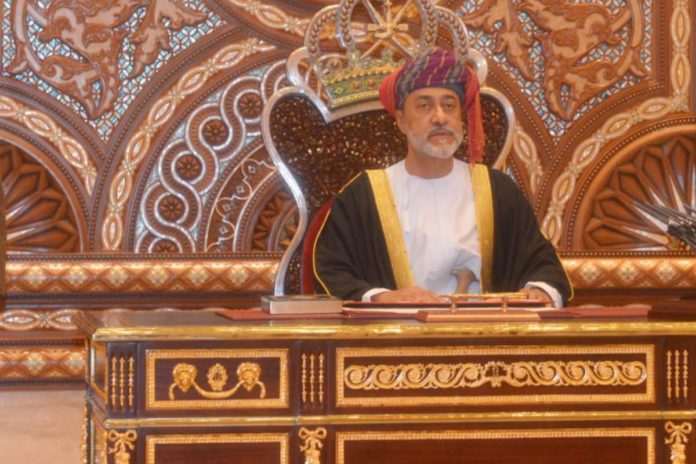(Bloomberg) –His Majesty Haitham bin Tariq Al Said has been chosen as the new ruler of Oman, succeeding his cousin Sultan Qaboos who has died at age 79 after almost half a century at the country’s helm.
H.M. Haitham was chosen ahead of his brother, Asaad, who was also seen as a potential heir after he was named deputy prime minister in 2017.
The family decided to honor the wishes of Sultan Qaboos, who had no known brothers or children, by picking the successor he designated in a letter, signaling continuity. It had the right to choose a new sultan within three days of Qaboos’ death on Friday.
Oman has often served as a neutral mediator in the region, earning it a “Switzerland of the Middle East” moniker. It sponsored cease-fire talks during the Iran-Iraq War in the 1980s, and hosted secret discussions between the U.S. and Iran that paved the way for the landmark nuclear deal in 2015. The Gulf nation didn’t participate in the Saudi-led boycott of Qatar in 2017.
In his first address to the nation after his swearing in, H.M. Haitham, 65, said he would “follow the path of Sultan Qaboos and build upon it.”
The new leader has held governmental positions over the last three decades, including minister of culture and heritage, general secretary of foreign affairs and head of the Anglo-Omani society. He was also head of the Oman Vision 2040 committee, the country’s economic and social development strategy.
H.M. Haitham may find himself under some pressure, particularly from Saudi Arabia and the United Arab Emirates regarding tensions with Iran, Gary Grappo, a former U.S. ambassador to Oman, said before Qaboos’ death.
He “won’t be able to rely on the wise counsel he used to receive from the U.K. and U.S., given their own leadership challenges,” Grappo said.
Marc Valeri, an Oman expert at the U.K.’s Exeter University, said the economy, though, would top the list of challenges.
Moves to diversify “sources of revenue of the state have been extremely slow, to say the least, and Oman faces dramatic social inequalities and endemic unemployment,” he said by email.
The new sultan may change the government’s economic approach as he’s more inclined toward privatization, according to a person who worked with H.M. Haitham who asked not to be named.
Sultan Qaboos transformed a country with barely any paved roads into an independent nation of 4 million people with a $79 billion economy. He gave women the vote in the early 1990s and enabled them to stand for public office, unprecedented moves for the Gulf, while retaining total control over major political decisions.
H.M. Haitham’s biggest obstacle is that “he won’t be Qaboos,” Grappo said. “With the possible exception of Lee Kuan Yew of Singapore, it’s hard to imagine another leader who’s had greater impact on his nation than Qaboos had in Oman. It’s inestimable.”
The largest Arab crude producer outside the Organization of Petroleum Exporting Countries, Oman’s finances have been battered by a slump in oil prices. The country plans to borrow 2 billion rials ($5.2 billion) to bridge the bulk of its 2020 budget deficit, which is expected to reach 2.5 billion rials this year.
Oman’s economy is expected to expand by 1.5% in 2019 and 2.8% in 2020, according to a Bloomberg survey of economists.






